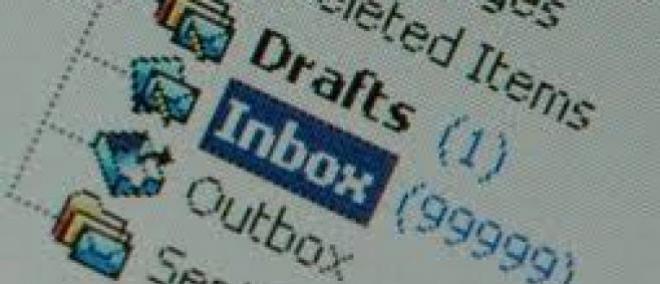
Manage your Email Before it Manages You
Email is an extremely useful communication tool in business. Less intrusive than a phone call, email is convenient and fast. It empowers entrepreneurs to run their businesses from just about anywhere. You can communicate with clients and customers, check in with employees and set up important meetings from your office or on the go.
But when used inappropriately, email can hinder productivity. More than one-quarter of a worker’s day on average is spent answering and reading emails, according to research released in 2012 by the McKinsey Global Institute. Its survey found that email is the second-most time-consuming activity for workers, next to “role-specific tasks.”
Business leaders, CEOs and managers often receive hundreds, if not thousands, of emails a day. Reading and responding to every message can become a drain on time and energy. A cluttered email inbox — filled with old, unopened or unimportant messages — will not only frustrate you. It will prevent you from maximizing your time and distract you from other obligations.
Here are four strategies to better manage your email and keep the messages in your inbox to a minimum.
1. Set aside time to read and respond to email.
Don’t leave your email program open all day long. Alerts and beeps from incoming messages can interrupt your work flow and leave you unfocused. Instead, schedule specific blocks of time throughout the day for checking your email. You might even try marking your calendar and setting your availability to “busy.” If necessary, turn off your cellphone and shut your office door to prevent interruptions by family members (if you work from home) or employees.
The amount of time required for reviewing email and replying will depend on how frequently you check messages and how many you typically receive. Some entrepreneurs find it more effective to dedicate 10 minutes every hour to email. Others prefer to only check email just two or three times a day.
2. Take action immediately.
Making quick decisions and pursuing immediate action will help keep your email inbox under control. The idea is to not delay until tomorrow what can be accomplished right away.
When you check your messages, browse the inbox for emails that can be immediately deleted such as spam or promotional emails. Then select messages that don’t require a response and delete or archive them. Once you’ve pared down the number of messages in your inbox, you’ll be able to better evaluate which ones are the most critical.
Don’t let important emails sit in your inbox for days. Unless you’re on vacation, respond within 48 hours. Reply to the sender as soon as you’ve read his or her message. If you’re unable to respond immediately, communicate to the sender that you received the message and will be in touch shortly. Set a deadline and follow up.
3. Organize an inbox with labels, folders and categories.
Although a majority of emails can be deleted, you’ll most likely want to retain messages related to key aspects of your business. Correspondence between clients, colleagues and employees can help clarify any miscommunications. Most email programs let users mark messages with specific labels or categories.
Prioritize, group, sort and file messages to keep your inbox organized. The better your filing system, the easier it will be to locate specific emails when you need them. Create parent categories for broad subjects such as the following: clients, projects and finances.
Then use subcategories to file emails related to specific clients or projects. Before you file a message, ensure the subject line is search-friendly. If it doesn’t accurately describe the content of the email, edit the subject line before it’s categorized and archived.
4. Unsubscribe from unwanted promotional emails.
Newsletters and advertisements can overwhelm your inbox and bury important messages. Clean out the clutter.
Unsubscribe from receiving messages from specific senders if you no longer want to receive their missives or don’t have the time to read them. To make the unsubscribe process quick and painless, search your inbox for the term “unsubscribe.” Review the search results and determine whose emails you would continue to welcome and the missives you would prefer to live without.
In Conclusion……
Email is a necessary form of professional communication. It has made communication much more effective in many ways. But allowing email to manage us instead of managing it decreases our effectiveness and productivity. Not all of the advice listed above is feasible in every situation. We should all think about what works best for us and try to implement some change.